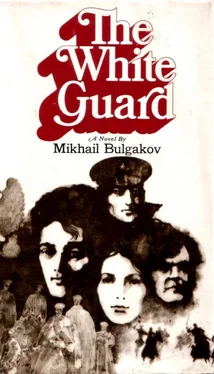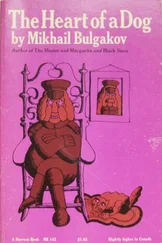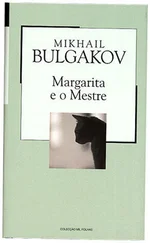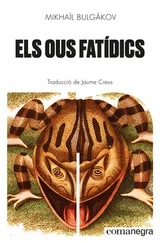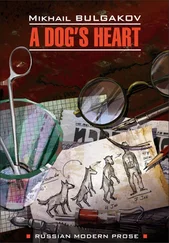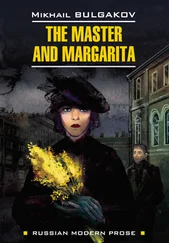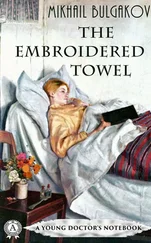MIKHAIL BULGAKOV - THE WHITE GUARD
Здесь есть возможность читать онлайн «MIKHAIL BULGAKOV - THE WHITE GUARD» весь текст электронной книги совершенно бесплатно (целиком полную версию без сокращений). В некоторых случаях можно слушать аудио, скачать через торрент в формате fb2 и присутствует краткое содержание. Жанр: Русская классическая проза, на английском языке. Описание произведения, (предисловие) а так же отзывы посетителей доступны на портале библиотеки ЛибКат.
- Название:THE WHITE GUARD
- Автор:
- Жанр:
- Год:неизвестен
- ISBN:нет данных
- Рейтинг книги:3 / 5. Голосов: 1
-
Избранное:Добавить в избранное
- Отзывы:
-
Ваша оценка:
- 60
- 1
- 2
- 3
- 4
- 5
THE WHITE GUARD: краткое содержание, описание и аннотация
Предлагаем к чтению аннотацию, описание, краткое содержание или предисловие (зависит от того, что написал сам автор книги «THE WHITE GUARD»). Если вы не нашли необходимую информацию о книге — напишите в комментариях, мы постараемся отыскать её.
Copyright © 1971 by McGraw-Hill Book Company.
Library of Congress Catalogue Card Number: 70-140252 08844
Printed in Great Britain
THE WHITE GUARD — читать онлайн бесплатно полную книгу (весь текст) целиком
Ниже представлен текст книги, разбитый по страницам. Система сохранения места последней прочитанной страницы, позволяет с удобством читать онлайн бесплатно книгу «THE WHITE GUARD», без необходимости каждый раз заново искать на чём Вы остановились. Поставьте закладку, и сможете в любой момент перейти на страницу, на которой закончили чтение.
Интервал:
Закладка:
pp. 132-142
. . . Who look the smartest?
Who move the fastest?
The Cadets of the Engineers!
And at that moment, out go the lights. Nikolka and his guitar stop playing. 'What the hell's the matter?' says Alexei. 'They keep going out. Lena my dear, let's have some candles.' Elena enters with a candle, and from somewhere very far away comes the boom of gunfire. '. . . I get the impression it's coming from the Svyato-shino direction', says Nikolka. 'Funny, though. It can't be as near as that.'
Nikolka Turbin is seventeen and a half. And I am seventeen and a half. Admittedly he wears a corporal's stripes on his shoulder straps and tricolor chevrons on his sleeves and I am simply an apprentice in a trades-union school for Soviet railwaymen, but we are both seventeen and a half. And he is talking about Svyatoshino, our Kievan suburb of Svyatoshino, and the lights had gone out in our apartment too and we too heard the sound of distant gunfire . ..
The firing boomed on day after day, with occasional random bursts of rifle-fire. And at night they used to hit a length of railroad track as some kind of alarm. People came and went. Then when everything calmed down we were taken to the Nicholas I Park in front of the university buildings, where it was always full of soldiers. Nowadays there are none, the park is a haunt of old-age pensioners playing dominoes, but in those days the people sitting on the benches were soldiers. They were of various kinds -Germans, Petlyura's men, and then in 1920 Poles, wearing British khaki greatcoats. We would run from bench to bench asking the Germans: 'Wieviel ist die Uhr?' The soldiers would laugh, and show us their watches, give us sweets and sit us on their knees. We liked them very much. But as for 'white guardists', or, as they were called in those days, 'volunteers', there was no sign of them. There were the two huge sentries who used to stand by the steps leading up to the Tereshchenkos' big house where General Dragomirov had his headquarters and we would throw pebbles at them, but they just stood dumbly there like statues . . .
I always think of them, those unmoving sentries, whenever I pass that house on the corner of Kuznechnaya and Karavaevskaya streets, the house which was metamorphosed into the prosaic Institute of Radiology after the general and his staff had left it. . .
. . . The electric lights come on again. The candles are put out. (The electricity came on again in our house too, but in our case we would put out oil lamps, not candles. God knows where the Turbins got their candles from - they were worth their weight in gold.) Talberg has still not returned. Elena is worried. A ring at the door. Enter Myshlaevsky, frozen to death. 'Careful how you hang it up, Nikolka. Don't knock it. There's a bottle of vodka in there...'
How many times have I seen The Days of the Turbins} Three or four, maybe even five times. I have grown up, but Nikolka has stayed seventeen. Sitting with my knees hunched up on the steps of the dress circle at the Moscow Art Theater, I felt as I always did that I was the same age as him. And Alexei Turbin has always seemed 'grown-up', much older than me, although when I last saw The Turbins, before the war, I was already at least as old as Alexei.
Sakhnovsky, a director at the Moscow Art Theater, wrote somewhere that for the younger generation at the M.A.T. The Turbins became 'the second Seagull'. I'm sure it was. But that was for the actors, for the M.A.T. - for me, though at first as an apprentice then as a gradually maturing student, The Turbins was not just a play but something much more. Even when I became an actor and began to be interested in it from the purely professional angle, even then The Turbins was still not merely a piece of theater, even though a play of great talent and fascination, oddly unique in our stage literature, but it was a tangible piece of life, receding as the years passed, yet always very near to me.
Why? After all, I had never known a single 'white guardist' in my life (I met some for the first time in Prague in 1945), my family had no liking for them at all (in our apartment we had Germans and French billeted on us and - my favourites - two Red Army men who smelled of home-grown shag and foot-cloths, but never a 'White'); my parents were in any case left-wing in sympathy, having made friends abroad with Plekhanov, and with Bolsheviks like Lunacharsky and Nogin . . . there were never any Myshlaevskys or Shervinskys in our house. But there was something else about our family, something obviously 'Turbinesque'. It is even rather hard to define exactly what it was. I was the only man in our family (my mother, my grandmother and my aunt and myself - aged seven), and there were no guitars, no rivers of wine - not even a trickle - in our house, and it would seem that we had nothing in common with the Turbins, unless you count our neighbour Alibek, an Ossete, who occasionally called on us wearing his Caucasian silver cartridge-pockets (Shervinsky?) and who, when I was a little more grown up, kept asking me whether one of my schoolmates wouldn't like to buy his dagger - he was rather fond of his drink. And yet we had something in common with the Turbins. A kind of spirit? The past? Things, perhaps?
'. . . furniture covered in old red velvet. . . worn carpets . . . the bronze lamp and its shade; the best bookshelves in the world full of books that smelled mysteriously of old chocolate, with their Natasha Rostovs and their Captain's Daughters, gilded cups, silver, portraits, drapes . . .'
In a word, the Turbins became part of my life, firmly and forever, at first by way of the play at the Moscow Art Theater, then through the novel, The White Guard. It was written a year or two before the play, but it did not come my way until the early thirties. And it strengthened the friendship. I was delighted that Bulgakov 'resurrected' Alexei, having 'killed' him in the play -after the novel of course, but I read the novel after seeing the play. The scope of the action was widened, new characters were introduced: Colonel Malyshev, the gallant Nai-Turs, the mysterious Julia, the landlord Vasilisa and his bony, jealous wife Wanda. On the M.A.T. stage there was the comfortable, lived-in apartment, as charming as the people who inhabited it, there were the cream-colored blinds which reduced Lariosik to tears of affection, but the novel recreated the whole life of that 'fair city, happy city, mother of Russian cities', deep in snow, mysterious and disturbing in that terrible 'year of Our Lord 1918, of the Revolution the second'.
All this was specially precious to us Kievans. Before Bulgakov, Russian literature had somehow missed Kiev out - except perhaps for Kuprin, and that was somehow so very pre-war. But in The White Guard everything was close at hand - familiar streets and crossroads, St Vladimir up on his hill holding the illuminated white cross in his hand (alas, I was too young to remember the time when that cross was lit up) which could be 'seen from far, far away and often in summer, in thick black mist, amid the osier beds and tortuous meanders of the age-old river, the boatmen would see it and by its light would steer their way to the City and its wharves'.
I don't know how other people feel, but for me the exact 'topography' of a book is always extremely important. For me it is essential to know - precisely! - where Raskolnikov and the old money-lending woman lived; where the heroes of Veresaev's In a Blind Alley lived, whereabouts in Koktebel was their little white house with its tiled roof and its green shutters. I was at first disappointed (because I had grown so used to the idea), and then delighted when I learned that the Rostovs never in reality lived on Povarskaya Street in the building which now houses the Union of Writers (Natasha lived in the wing which is now the personnel office or the accounts department, or something . . .). But I have always felt it important to know where the heroes of their books lived, not the authors. They have always been (now, perhaps, to a lesser degree) more significant to me than the authors who invented them. To this day for me Rastignac is more 'alive' than Balzac, just as I still find d'Artagnan more real than Dumas pere.
Читать дальшеИнтервал:
Закладка:
Похожие книги на «THE WHITE GUARD»
Представляем Вашему вниманию похожие книги на «THE WHITE GUARD» списком для выбора. Мы отобрали схожую по названию и смыслу литературу в надежде предоставить читателям больше вариантов отыскать новые, интересные, ещё непрочитанные произведения.
Обсуждение, отзывы о книге «THE WHITE GUARD» и просто собственные мнения читателей. Оставьте ваши комментарии, напишите, что Вы думаете о произведении, его смысле или главных героях. Укажите что конкретно понравилось, а что нет, и почему Вы так считаете.
